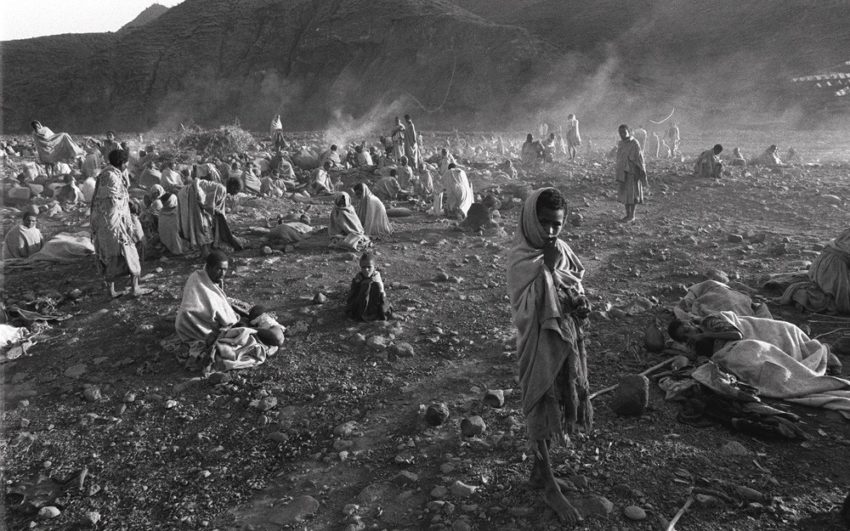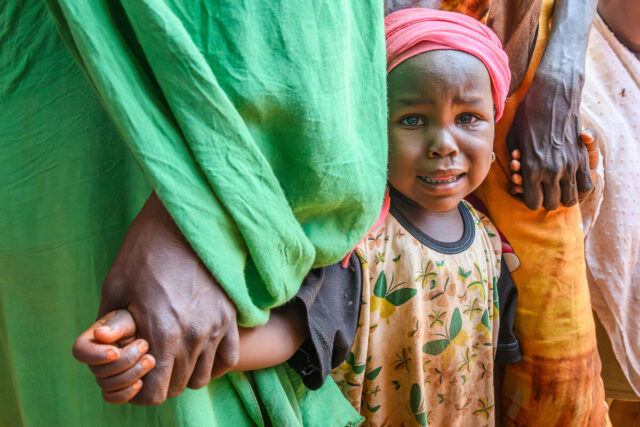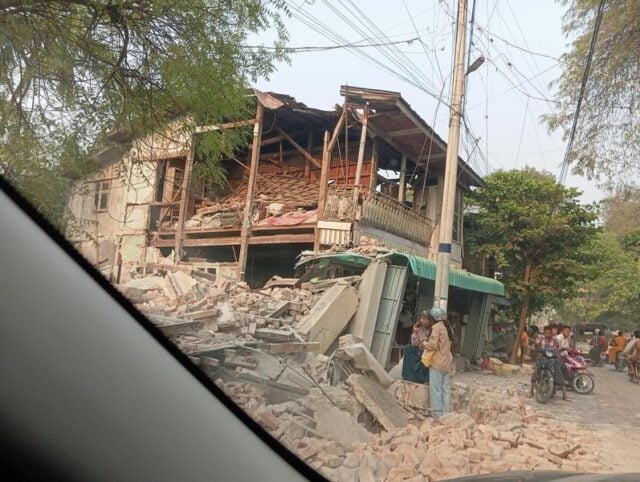World Vision photographs document the most tragic crises of the past six decades. Now, many of these places have seen healing and recovery, thanks to the work of humanitarian organizations including World Vision. Sept. 22 marks World Vision’s 62nd anniversary of serving children, families, and communities in need.
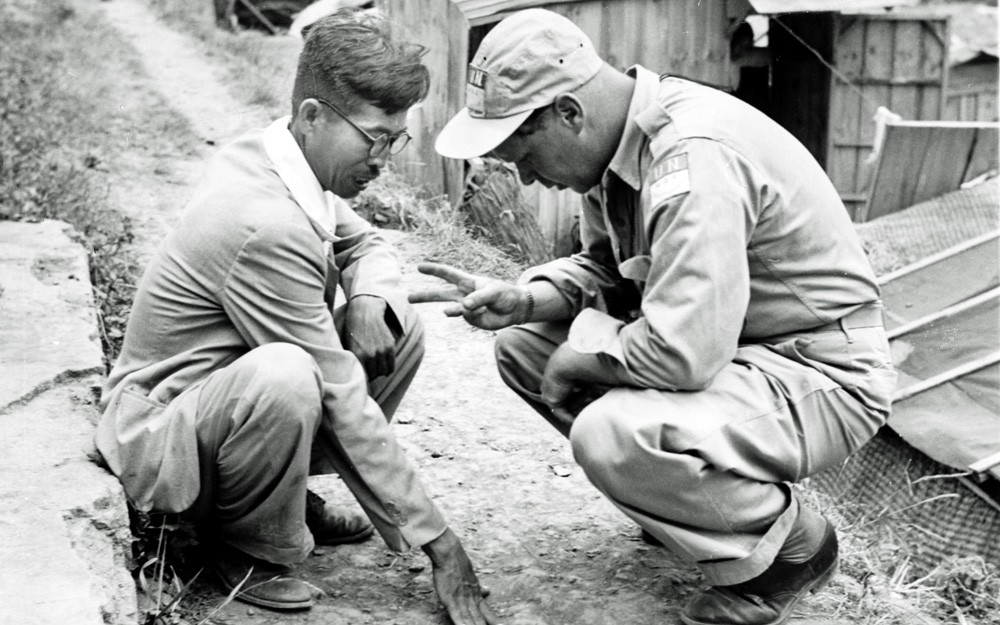 Korea, 1952: World Vision founder Bob Pierce reported on the Korean War as a United Nations war correspondent, filing stories for the American Christian press. His description of people’s struggles and needs helped fuel World Vision’s early fundraising efforts. (© 1952 World Vision)
Korea, 1952: World Vision founder Bob Pierce reported on the Korean War as a United Nations war correspondent, filing stories for the American Christian press. His description of people’s struggles and needs helped fuel World Vision’s early fundraising efforts. (© 1952 World Vision)
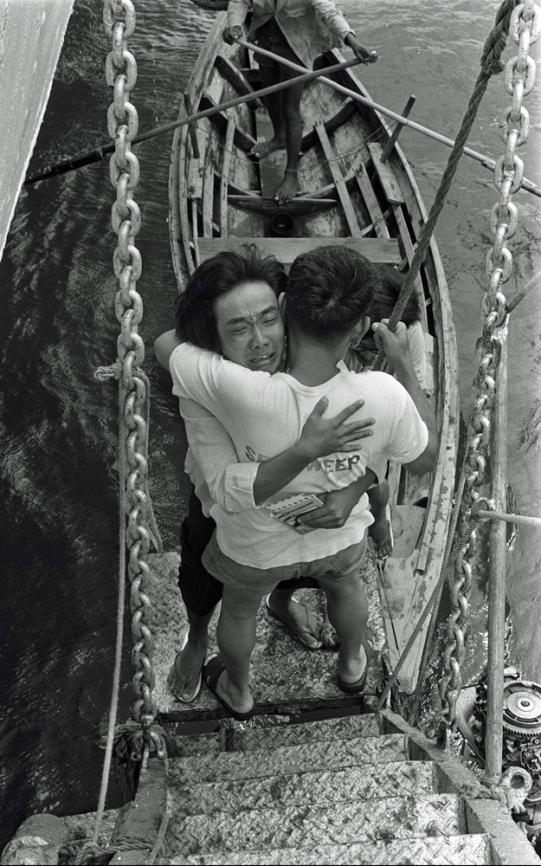 South China Sea, 1979: Aboard World Vision’s ship, Operation Seasweep, a crew member recognizes one of the just-rescued as his cousin. Seasweep assisted families fleeing war-torn Vietnam by boat, giving them medical care and helping transport them to refugee camps. (© 1979 World Vision/photo by John Kubly)
South China Sea, 1979: Aboard World Vision’s ship, Operation Seasweep, a crew member recognizes one of the just-rescued as his cousin. Seasweep assisted families fleeing war-torn Vietnam by boat, giving them medical care and helping transport them to refugee camps. (© 1979 World Vision/photo by John Kubly)
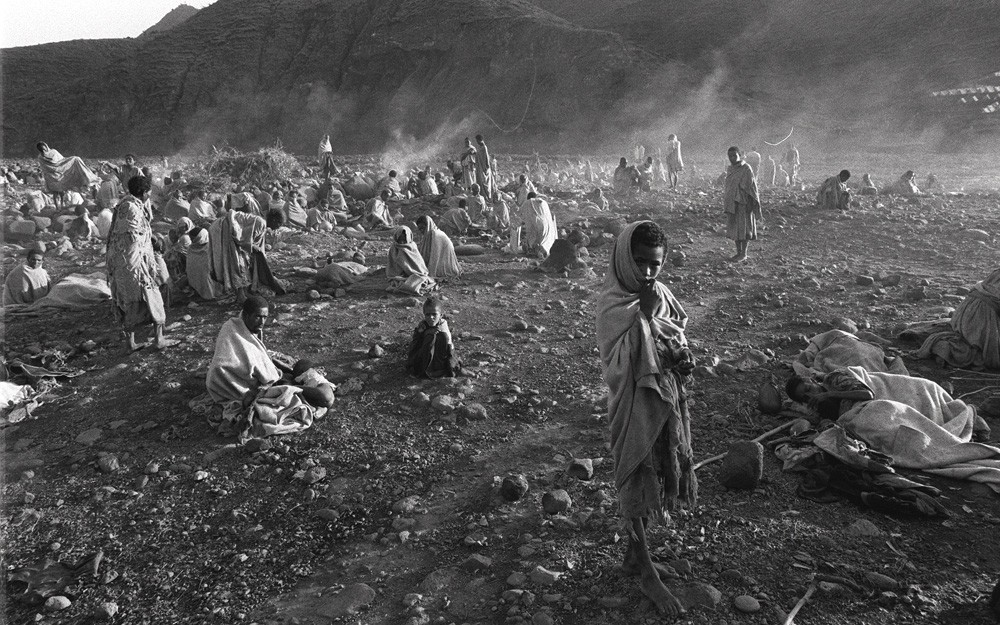 Ethiopia, 1985: Near a World Vision feeding center in Sanka, people rise with the dawn after sleeping outside all night, hoping to find relief from the famine that gripped the country. (© 1985 World Vision/photo by Steve Reynolds)
Ethiopia, 1985: Near a World Vision feeding center in Sanka, people rise with the dawn after sleeping outside all night, hoping to find relief from the famine that gripped the country. (© 1985 World Vision/photo by Steve Reynolds)
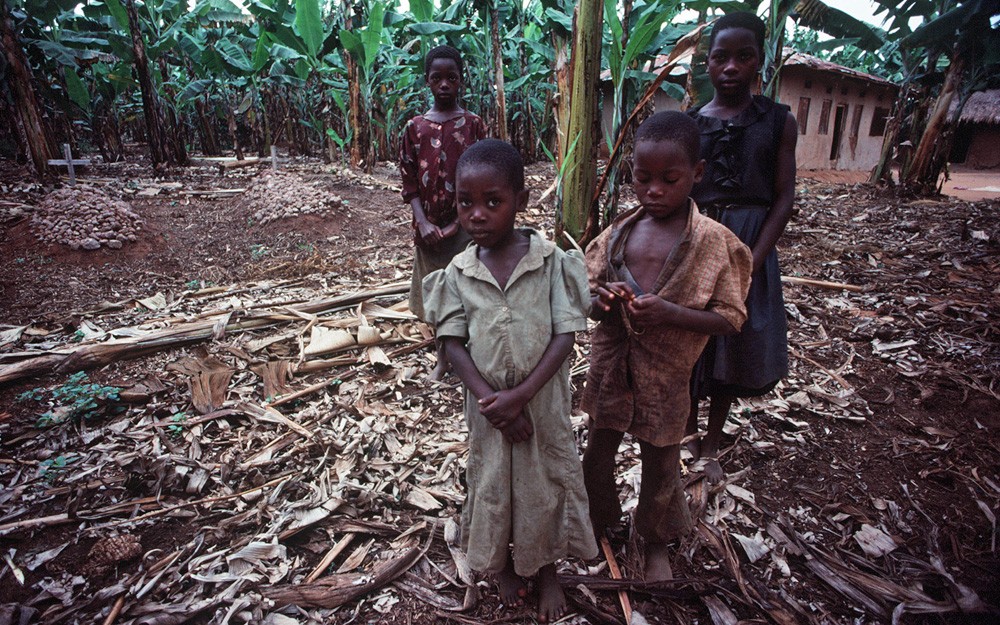 Uganda, 1990: In southern Rakai, siblings Teopista, John Bosco, Rosemary, and Felistus pose near their parents’ graves. As AIDS devastated rural communities, World Vision began special programs and child sponsorship to help thousands of orphans. (© 1990 World Vision/photo by David Ward)
Uganda, 1990: In southern Rakai, siblings Teopista, John Bosco, Rosemary, and Felistus pose near their parents’ graves. As AIDS devastated rural communities, World Vision began special programs and child sponsorship to help thousands of orphans. (© 1990 World Vision/photo by David Ward)
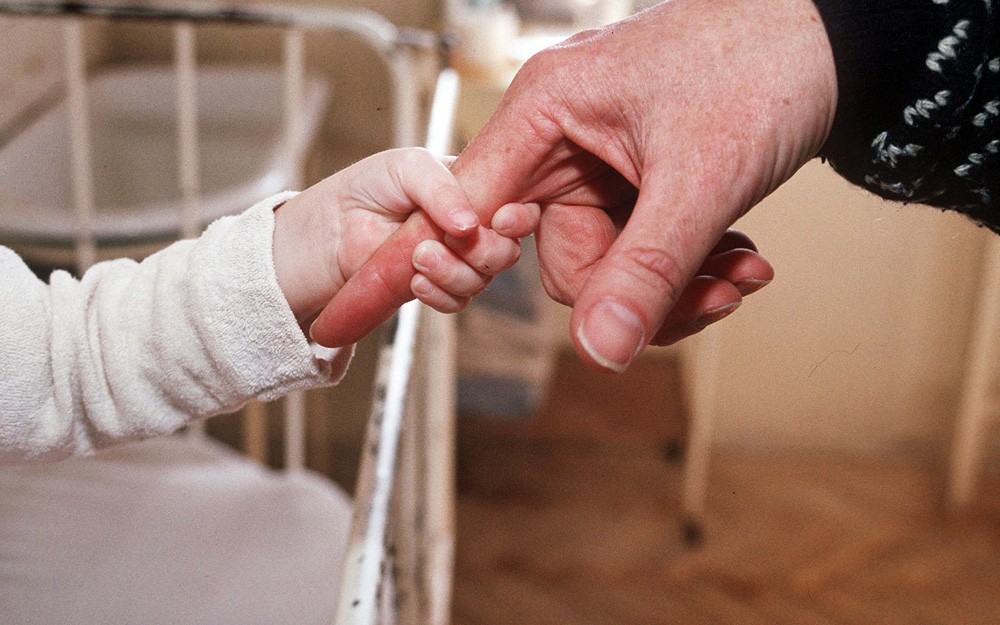 Romania, 1991: World Vision President Bob Seiple provides the human touch for a child in the Leagunul Pentru Orphanage in Cluj-Napoca. After communism ended, the world discovered that many of the children living in oppressive, understaffed institutions had been abandoned by their parents. (© 1991 World Vision/photo by Bruce Brander)
Romania, 1991: World Vision President Bob Seiple provides the human touch for a child in the Leagunul Pentru Orphanage in Cluj-Napoca. After communism ended, the world discovered that many of the children living in oppressive, understaffed institutions had been abandoned by their parents. (© 1991 World Vision/photo by Bruce Brander)
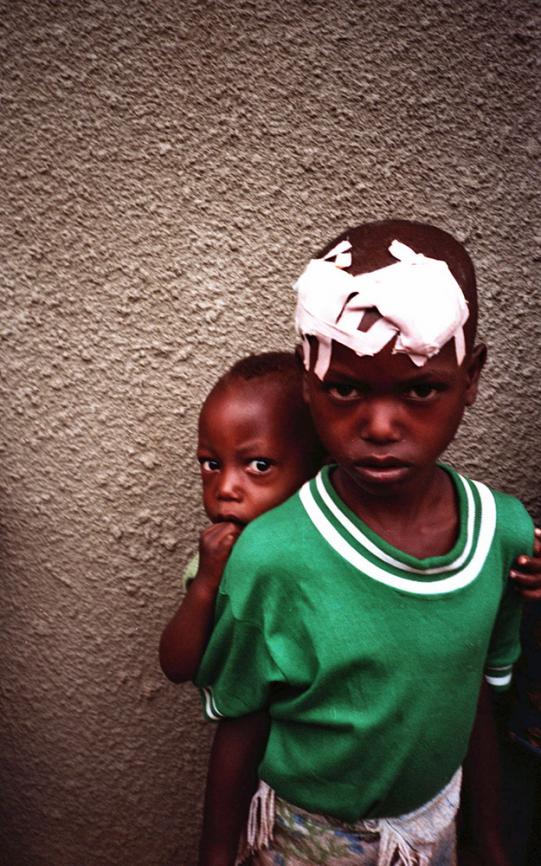 Rwanda, 1994: A team of World Vision journalists arrived in the country weeks after the genocidal violence began. Amid scenes of massacres, they found these young survivors taking refuge in the Gahini Missionary Hospital near Kigali. (© 1994 World Vision/photo by Robby Muhumuza)
Rwanda, 1994: A team of World Vision journalists arrived in the country weeks after the genocidal violence began. Amid scenes of massacres, they found these young survivors taking refuge in the Gahini Missionary Hospital near Kigali. (© 1994 World Vision/photo by Robby Muhumuza)
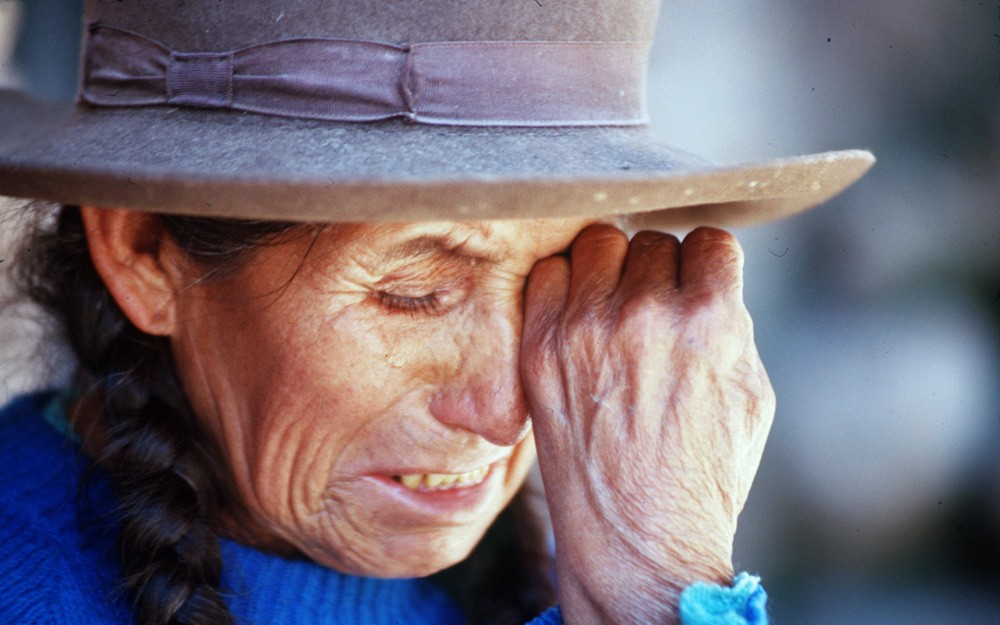 Peru, 1997: Abilia Acuna Loila’s grief is still fresh as she recounts the murder of her daughter by Shining Path rebels five years earlier in Ayacucho Province. World Vision was forced to reduce operations in Peru during the worst of the violence in the early 1990s, including suspending child sponsorship. (© 1997 World Vision/photo by Todd Bartel)
Peru, 1997: Abilia Acuna Loila’s grief is still fresh as she recounts the murder of her daughter by Shining Path rebels five years earlier in Ayacucho Province. World Vision was forced to reduce operations in Peru during the worst of the violence in the early 1990s, including suspending child sponsorship. (© 1997 World Vision/photo by Todd Bartel)
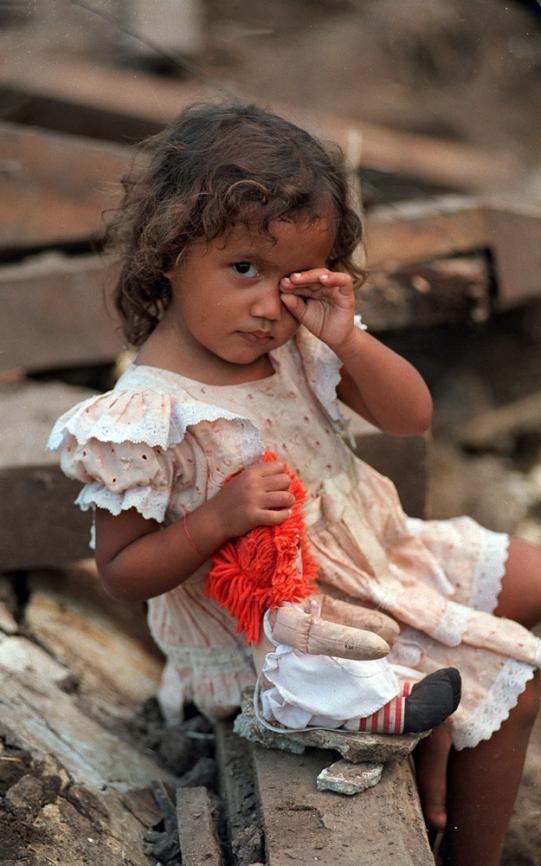 Honduras, 1998: Sponsored child Angelica Elizabeth López, 3, survived the storm but lost her home to Hurricane Mitch, which killed more than 9,000 people across Central America. (© 1998 World Vision/photo by Jon Warren)
Honduras, 1998: Sponsored child Angelica Elizabeth López, 3, survived the storm but lost her home to Hurricane Mitch, which killed more than 9,000 people across Central America. (© 1998 World Vision/photo by Jon Warren)
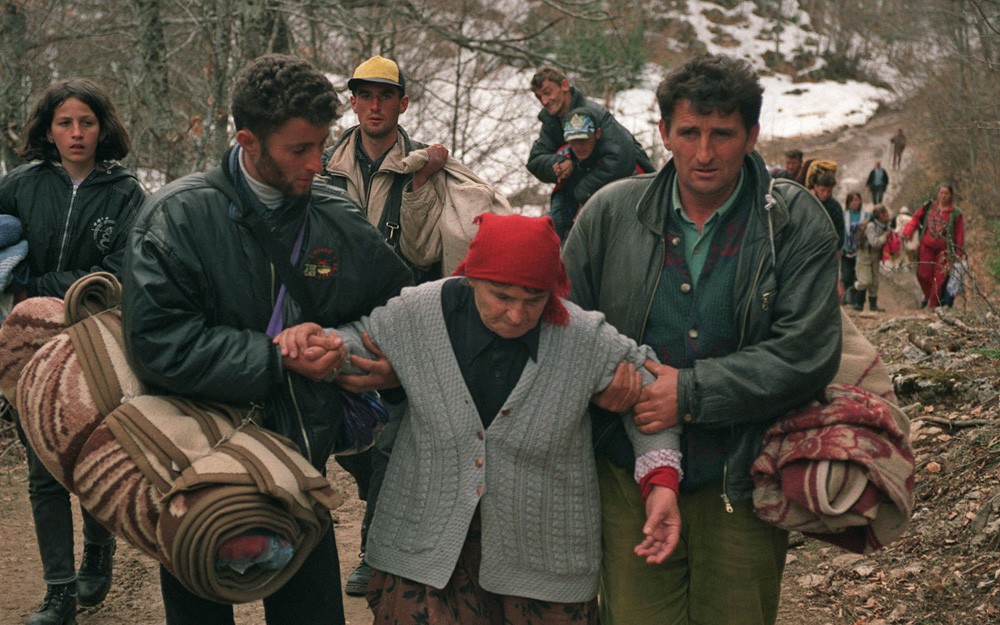 Kosovo, 1999: Ethnic Kosovar families fled from Serb attacks on their village near Istok, many trekking over mountain roads by foot. NATO bombing helped end the conflict a few months later, allowing people to return home. (© 1999 World Vision/photo by John Schenk)
Kosovo, 1999: Ethnic Kosovar families fled from Serb attacks on their village near Istok, many trekking over mountain roads by foot. NATO bombing helped end the conflict a few months later, allowing people to return home. (© 1999 World Vision/photo by John Schenk)
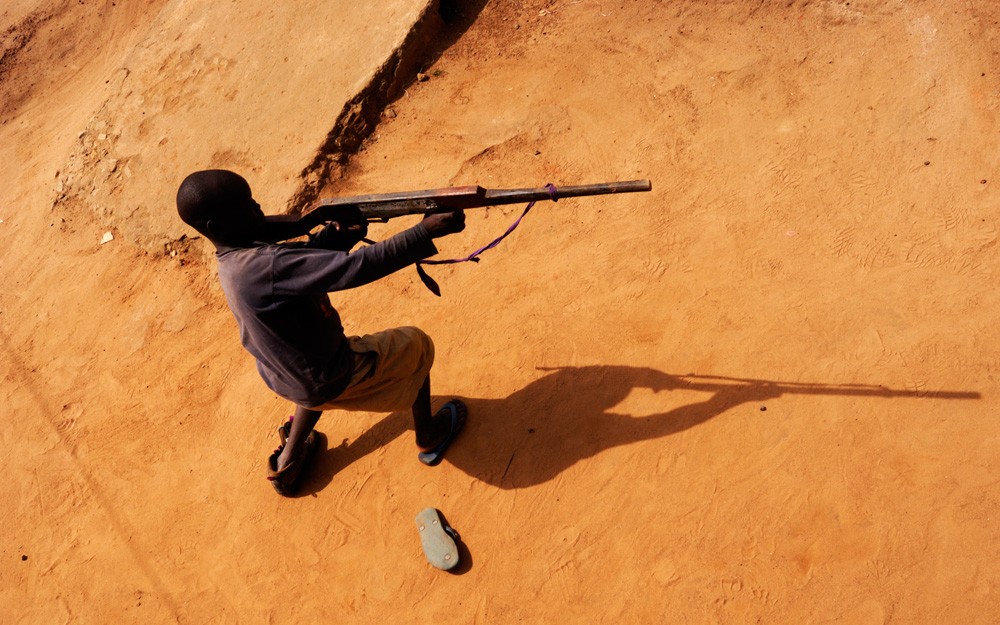 Uganda, 2005: A boy at World Vision’s Children of War Rehabilitation Center in Gulu uses a toy gun to reenact his experiences as a captive of the Lord’s Resistance Army. For more than 20 years the rebel group terrorized northern Uganda and forced children into combat and sexual slavery. (© 2005 World Vision/photo by Jon Warren)
Uganda, 2005: A boy at World Vision’s Children of War Rehabilitation Center in Gulu uses a toy gun to reenact his experiences as a captive of the Lord’s Resistance Army. For more than 20 years the rebel group terrorized northern Uganda and forced children into combat and sexual slavery. (© 2005 World Vision/photo by Jon Warren)
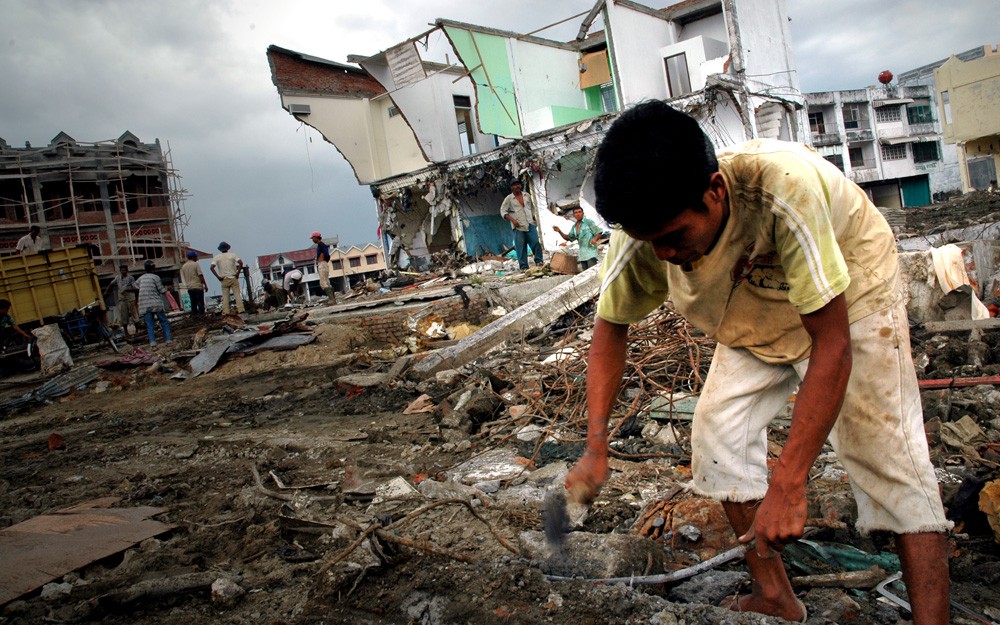 Indonesia, 2005: The city of Banda Aceh was devastated by the tsunami triggered by a massive earthquake on Dec. 26, 2004. More than 120,000 people died. World Vision and many other humanitarian organizations helped Aceh rebuild. (© 2005 World Vision/photo by Kevin Cook)
Indonesia, 2005: The city of Banda Aceh was devastated by the tsunami triggered by a massive earthquake on Dec. 26, 2004. More than 120,000 people died. World Vision and many other humanitarian organizations helped Aceh rebuild. (© 2005 World Vision/photo by Kevin Cook)
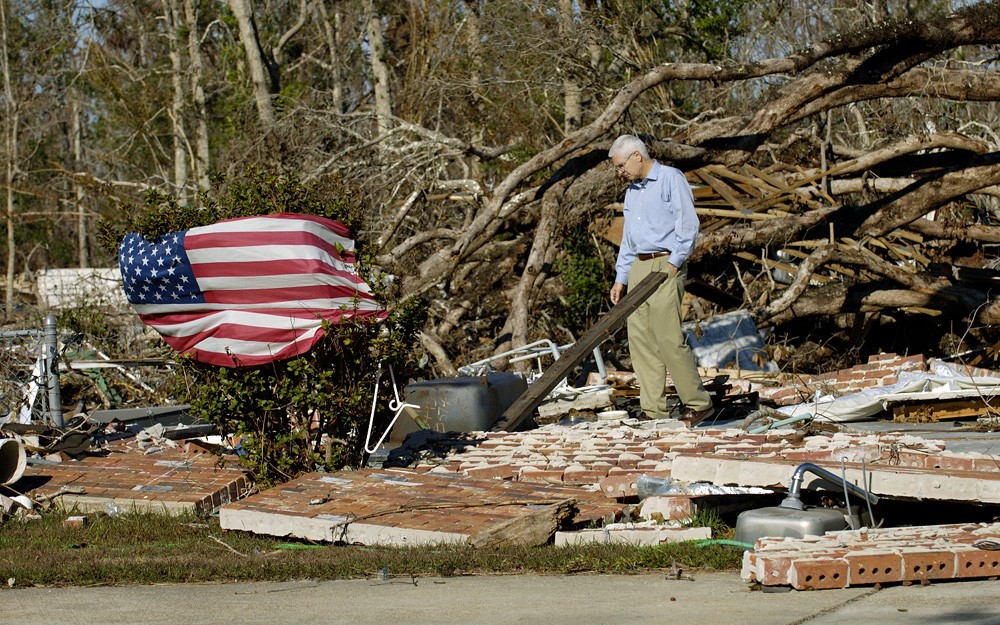 United States, 2005: World Vision U.S. President Rich Stearns takes in the destruction in Waveland, Mississippi, after Hurricane Katrina. World Vision opened a 40,000-square-foot distribution center in North Texas to provide cleaning products, building materials, and other supplies for affected families. (© 2005 World Vision/photo by Jon Warren)
United States, 2005: World Vision U.S. President Rich Stearns takes in the destruction in Waveland, Mississippi, after Hurricane Katrina. World Vision opened a 40,000-square-foot distribution center in North Texas to provide cleaning products, building materials, and other supplies for affected families. (© 2005 World Vision/photo by Jon Warren)
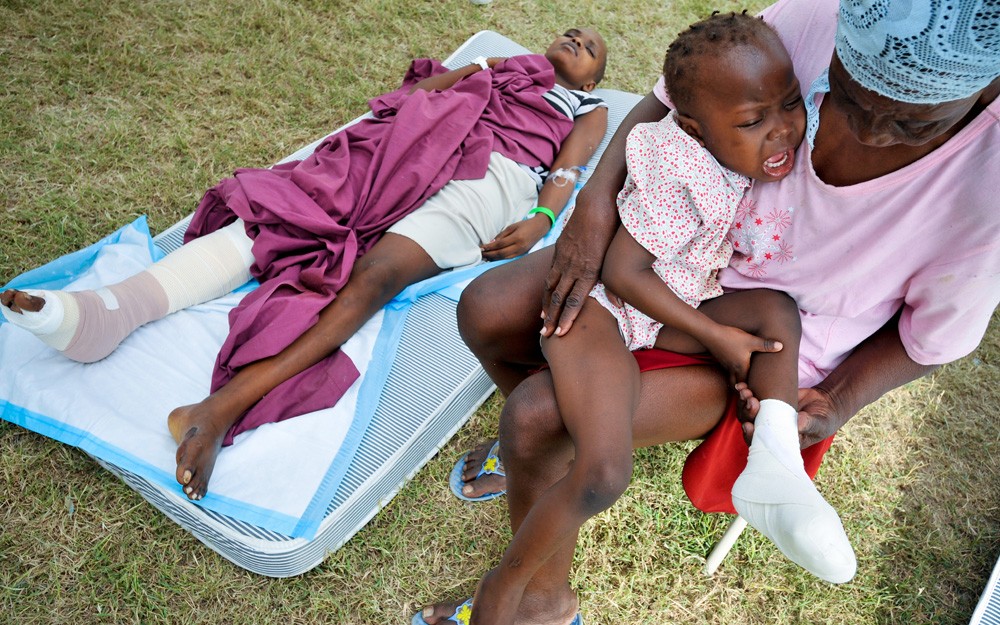 Haiti, 2010: Jenny Cherry, 4, wails in pain at a makeshift hospital in Fond Parisen, where many victims of the 7.0-magnitude earthquake were treated. The catastrophe killed an estimated 220,000 people and destroyed the capital, Port-au-Prince, and the surrounding area. World Vision continues to help communities recover and return to normalcy. (© 2010 World Vision/photo by Jon Warren)
Haiti, 2010: Jenny Cherry, 4, wails in pain at a makeshift hospital in Fond Parisen, where many victims of the 7.0-magnitude earthquake were treated. The catastrophe killed an estimated 220,000 people and destroyed the capital, Port-au-Prince, and the surrounding area. World Vision continues to help communities recover and return to normalcy. (© 2010 World Vision/photo by Jon Warren)
